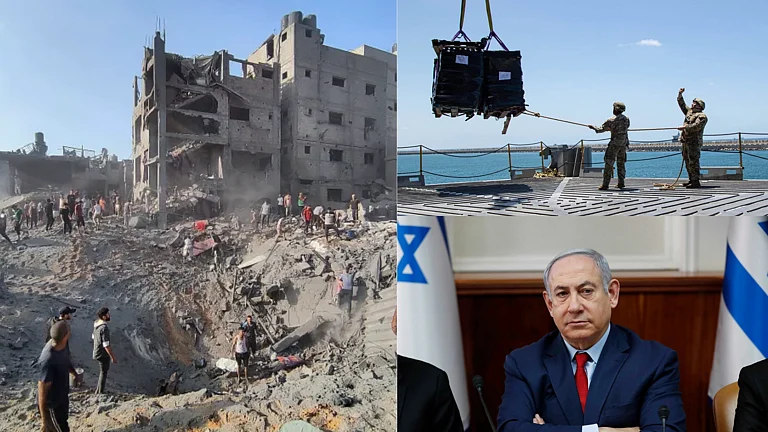The UN General Assembly will vote Wednesday on a Palestinian resolution demanding that Israel end its “unlawful presence” in Gaza and the occupied West Bank within a year, withdraw its military forces and evacuate all settlers.
The resolution is being put to a vote in the 193-member assembly as Israel's war against Hamas in Gaza approaches its first anniversary and as violence in the West Bank reaches new highs. The war was triggered by Hamas attacks in southern Israel on Oct. 7.
Riyad Mansour, the Palestinian U.N. ambassador, opened the assembly meeting Tuesday by saying Palestinians face an “existential threat” and claiming Israel has held them “in shackles.” He demanded an end to Israel's decades-long occupation and for Palestinians to be able to return home to live in peace and freedom.
Israel's ambassador to the U.N., Danny Danon, urged member nations to reject the resolution, describing it as “an attempt to destroy Israel through diplomatic terrorism” that never mentions Hamas' atrocities and “ignores the truth, twists the facts and replaces reality with fiction.”
“Instead of a resolution condemning the rape and massacre committed by Hamas on Oct. 7, we gather here to watch the Palestinians' U.N. circus — a circus where evil is righteous, war is peace, murder is justified and terror is applauded,” he said.
If adopted, the resolution would not be legally binding, but the extent of its support would reflect world opinion. There are no vetoes in the General Assembly, unlike in the 15-member Security Council.
The resolution is a response to a ruling by the top United Nations court in July that said Israel's presence in the Palestinian territories is unlawful and must end.
In the sweeping condemnation of Israel's rule over the lands it captured during the 1967 war, the International Court of Justice said Israel had no right to sovereignty over the Palestinian territories and was violating international laws against acquiring the lands by force.
The court's opinion also is not legally binding. Nonetheless, the Palestinians drafted the resolution to try to implement the ruling, saying Israel's “abuse of its status as the occupying power” renders its “presence in the occupied Palestinian territory unlawful.”
Mansour stressed that any country that thinks the Palestinian people “will accept a life of servitude” or that claims peace is possible without a just solution to the Israeli-Palestinian conflict is “not being realistic.”
The solution remains an independent Palestinian state based on the 1967 borders, with East Jerusalem as its capital, living side by side in peace and security with Israel, he said.
U.S. Ambassador to the U.N. Linda Thomas Greenfield told reporters that the resolution has “a significant number of flaws,” saying it goes beyond the ICJ ruling. It also doesn't recognize that “Hamas is a terrorist organization” in control of Gaza and that Israel has a right to defend itself, she said.
“In our view, the resolution does not bring about tangible benefits across the board for the Palestinian people,” Thomas-Greenfield said. “I think it could complicate the situation on the ground, complicate what we're trying to do to end the conflict, and I think it impedes reinvigorating steps toward a two-state solution.”
The resolution calls for Israel to pay reparations to Palestinians for the damage caused by its occupation and urges countries to take steps to prevent trade or investments that maintain Israel's presence in the territories.
It also demands that Israel be held accountable for any violations of international law, that sanctions be imposed on those responsible for maintaining Israel's presence in the territories, and for countries to halt arms exports to Israel if they're suspected of being used there.
Mansour said an initial Palestinian draft demanded Israel end its occupation within six months but that it was revised in response to concerns of some countries to increase the time frame to within a year.
Most likely, he said, Israel won't pay attention to the resolution.


























